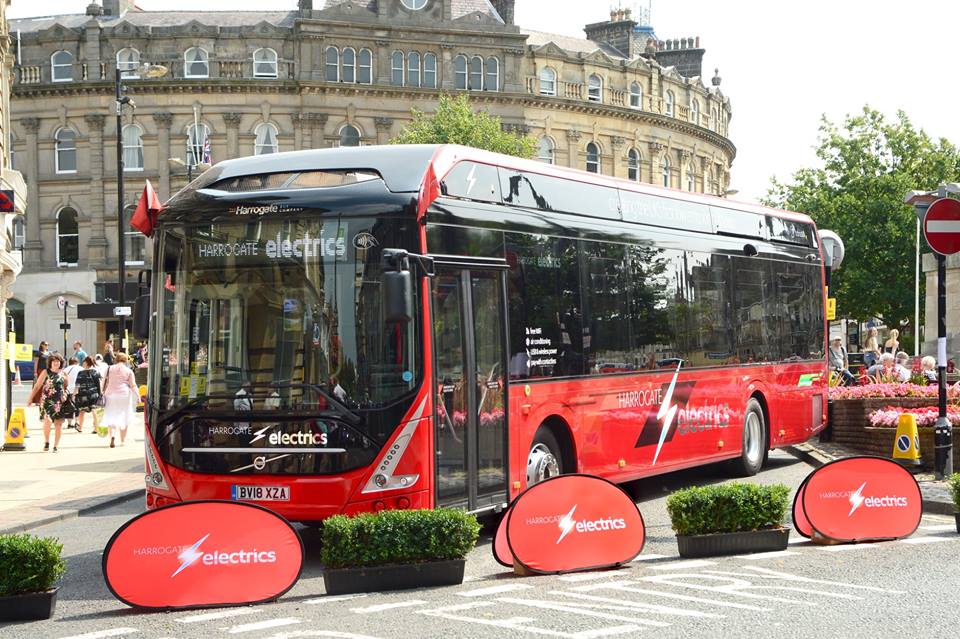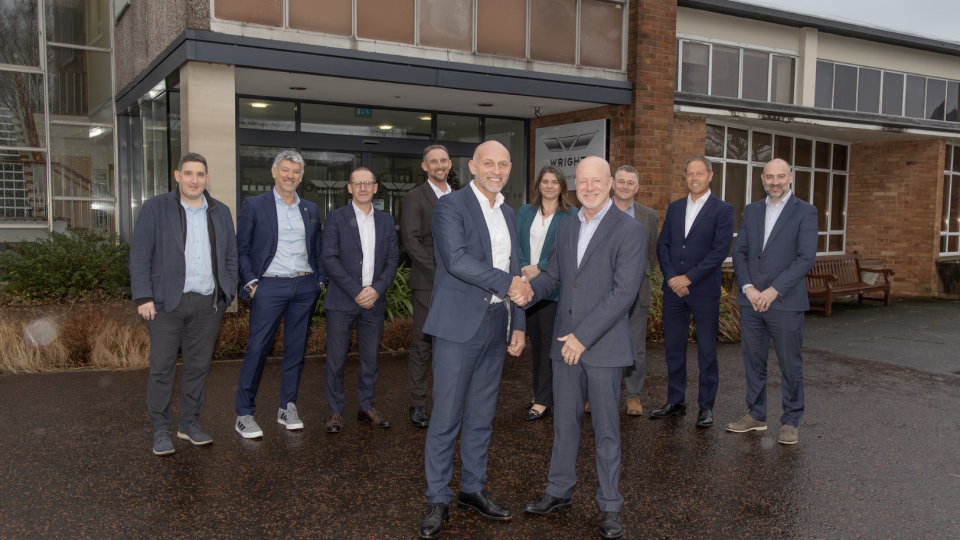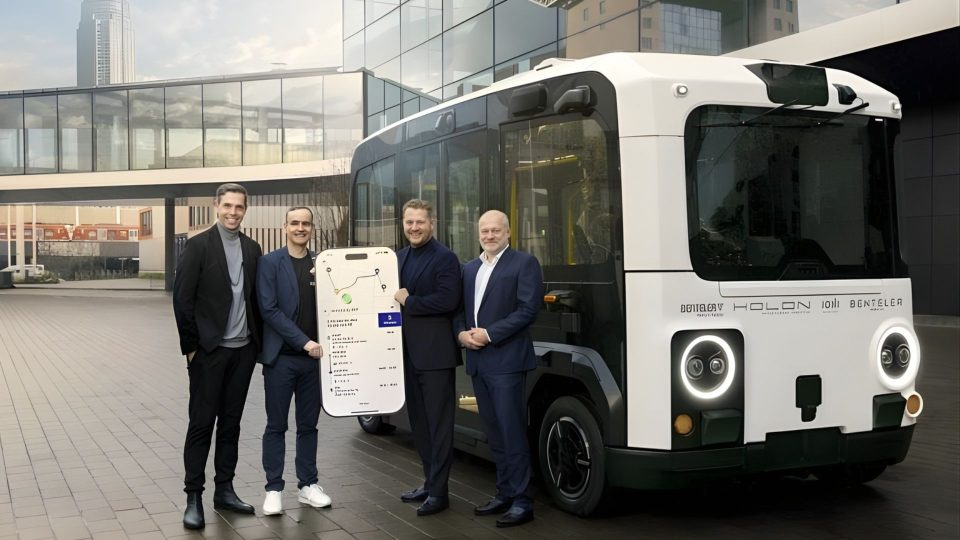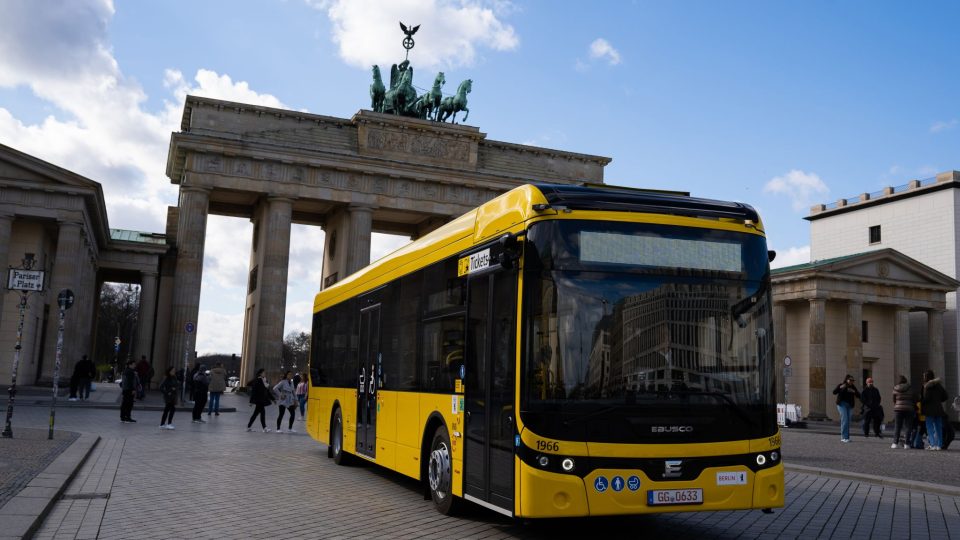Electric buses powered by diesel generator till charging stations will be ready. A true story from UK
Electric buses are not enough to make a green fleet. Issues such as energy production and life cycle emissions are quite known and debated. But what is happening in UK is a real extreme case: a fleet of electric buses powered by a diesel generator. Indeed, Harrogate Bus Company claims it’s having red-tape troubles with […]
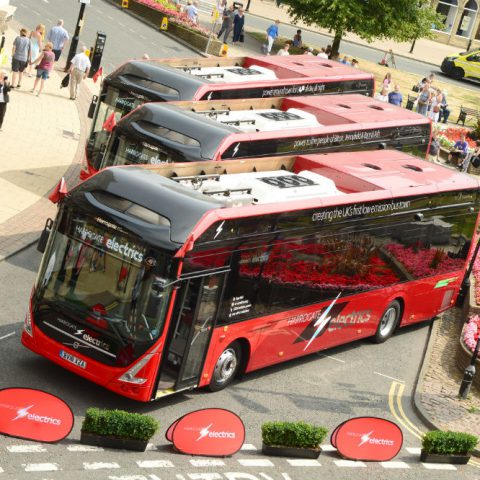
Electric buses are not enough to make a green fleet. Issues such as energy production and life cycle emissions are quite known and debated. But what is happening in UK is a real extreme case: a fleet of electric buses powered by a diesel generator. Indeed, Harrogate Bus Company claims it’s having red-tape troubles with infrastructures. So, the “fuelling” of the electric buses, for the moment, depend on… diesel.
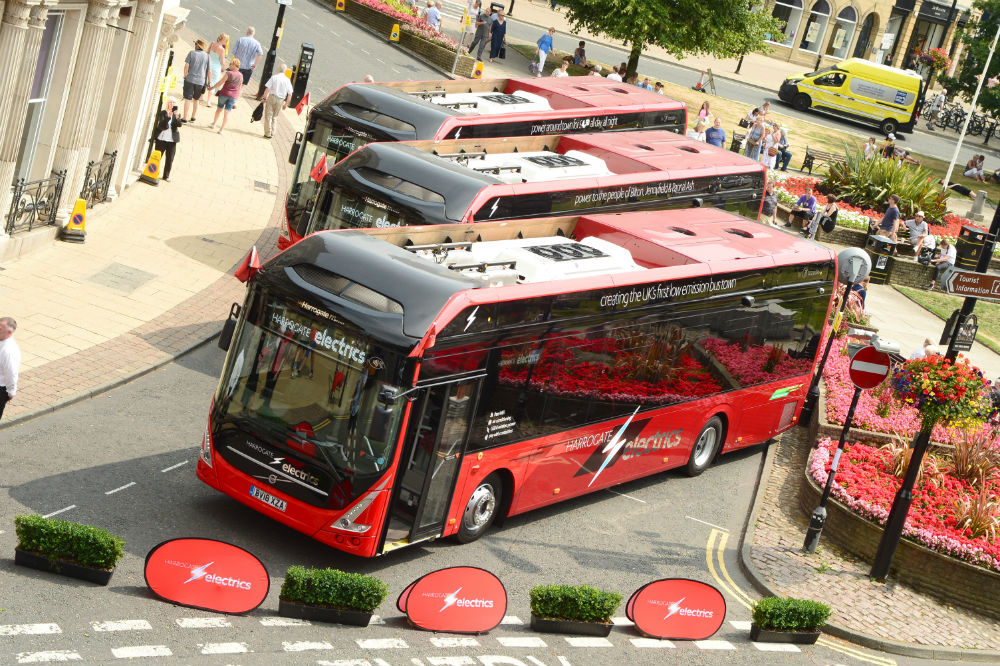
Eight Volvo electric buses presented in August
The fact was discovered by the BBC Local Democracy Reporting Service. Harrogate Bus Company is a subsidiary of Transdev Blazefield and presented in August a fleet of eight electric buses. They were welcomed as the first Opp-Charge buses in UK. In five years, according to the statements, Harrogate is supposed to become a low emission bus town. The buses are funded by a £2.25 million grant from the Government’s Low Emission Bus Scheme, while the company is investing about £1.7 million. The buses are Volvo 7900 Electric, equipped with wifi connection and Usb spots. And pantograph. In August local press reported that the buses were expected to go into service as soon as Northern Powergrid connects up the charging masts at the bus station, «probably in 2-3 weeks’ time».
Harrogate Bus Company struggling with infrastructure
But something went terribly wrong. Harrogate Bus Company’s general manager Keith Roebuck told the press that the generator was a “short term interim measure” for use while the company worked through a “red-tape infrastructure issue. We’re working hard to resolve the red-tape infrastructure issue which is preventing us from using the electric chargers as we had planned. Once we have resolved the issue, the chargers will be fuelled by a renewable energy contract ensuring that the buses are truly zero emission”.
Three charging stations at the depot
BBC also quoted a spokeman from Northern Powergrid, who confirmed that the power company would be able to supply the required capacity to power the fleet from the three charging masts at the bus station. “We’ve worked closely with The Harrogate Bus Company, their chosen independent connection provider and independent distribution network operator to make available a connection and the required capacity to help transform Harrogate into Britain’s first low emission bus town,” the spokeswoman said.
